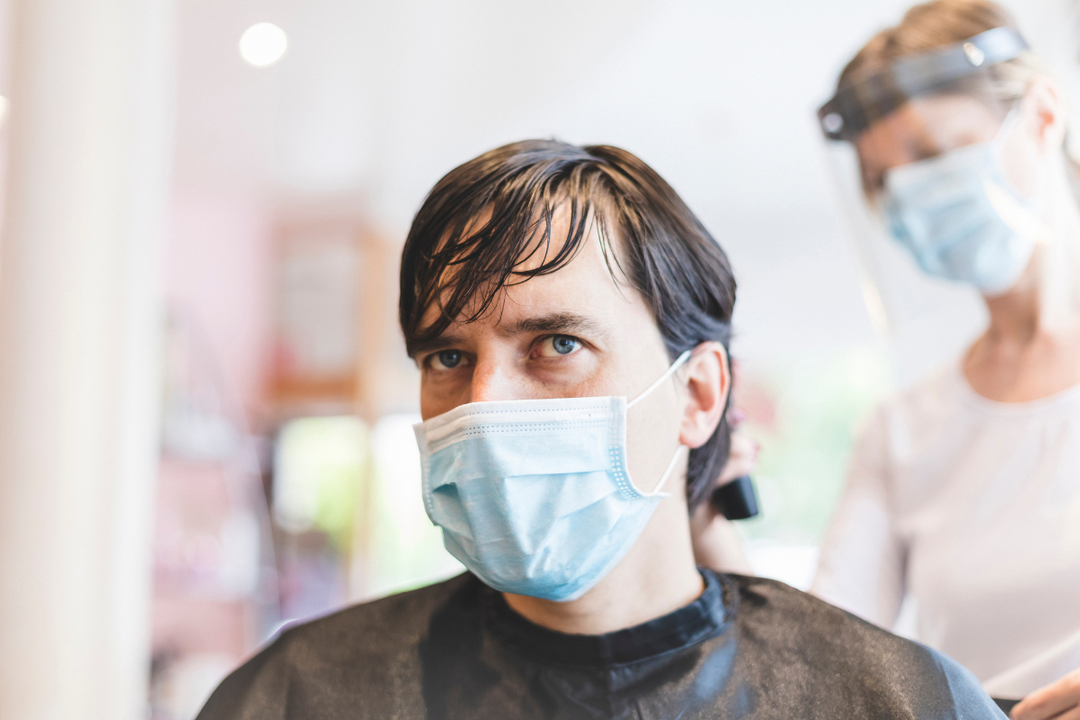COVID-19 and Hair Loss: Why Hair Health and COVID-19 Do Not Mix
Posted by Thymuskin on Apr 7th 2021
Do you see more fallen hair in your brush and clumps of hair in your shower drain after recovering from a bout with COVID-19? Turns out, you are not alone and it’s likely not in your head - but on your head.
An increasing number of people who have recovered from COVID-19 have reported that hair loss after COVID-19 is a cause for concern for them.
How is the Hair Growth Phase Affected by COVID-19?
The data is still coming in, but excessive hair loss is especially common in people the medical community has now dubbed “COVID-19 Long Haulers”, or the patients who continue to have symptoms for months after they have recovered from the virus.
What’s going on? Isn’t it enough we are dealing with an unprecedented healthcare crisis? Is our crowning glory just another price we’ll pay for the global pandemic? As it stands the answer is yes, and no.
100 hairs a day. That is the average amount of hair strands most people lose in a day. What happens when excessive hair is being shed? Most of us have heard of someone who has experienced excessive hair loss. New mothers, around three months after having a baby, can experience some pretty dramatic hair loss. The medical community tells us that post-partum hair loss is caused by the physical and hormonal changes that happen after pregnancy, and that the hair loss generally grows back quickly. New mothers normally recover from post-partum hair loss and are soon back to their full head of hair before their two-year-old makes them want to tear it out.
This type of hair loss is called telogen effluvium. Telogen effluvium is hair growth not determined much by age or genetics, but about stress, hormones, and the body’s natural hair growth cycle. There are several medical conditions that cause people to suffer this type of delayed hair loss. Researchers now know that having COVID-19 is one of them.
Hair naturally grows and rests during different periods of our lives. How fast a person’s hair grows can be genetic. We all know that family with the “great hair” we envy. Hair growth can slow as you get older, but hair loss like telogen effluvium is different.
If you are dealing with excessive hair loss, your doctor can rule out nutrition, thyroid, or infection issues and ask about any new supplements or lifestyle changes because they can also affect hair growth cycles. More often with sudden, dramatic hair loss, doctors look to stress as the culprit, such as being ill or under emotional strain.
The environmental conditions you live in can also affect hair growth. Our hair always seems to grow a little faster in the summer. Hormones released in the body, including all the sunny summer vitamin D, can temporarily increase the rate of hair growth. When fall arrives, we notice our hair growth seems to slow down and that’s because it does. This hair growth phase is called the anagen phase. The time when hair is taking a break during a resting phase is called telogen.
When a person is under physical stress from the demand that fighting a virus, particularly COVID-19, takes on your entire body, it can trigger telogen effluvium. Many COVID-19 survivors have shared their COVID-19 hair loss struggles.
“Do you have a fever, loss of sense of taste or smell?” We all know the common signs of COVID-19. But even though the medical community tells us that there is evidence that hair loss can be a delayed side effect from COVID-19, the CDC hasn’t added it to their list of COVID-19 symptoms. That leaves many who are struggling with COVID-19 hair loss scratching their heads over the disturbing fall out.
Is COVID-19 Hair Loss Permanent?
Medical professionals have reported an increase in patients with hair loss around six weeks after their COVID-19 diagnosis. What exactly is triggering the excessive hair loss? The easy answer is stress. COVID-19 can be physically and emotionally draining, causing the COVID-19 hair loss that is happening.
Stress and Hair Loss
Excessive hair loss can happen to anyone, not just people who have had COVID-19. When people are stressed for many reasons like emotional trauma, surgery, or an illness with a high fever, more hair follicles move into the telogen phase of hair growth, leading to hair shedding. Hair growth isn’t as important as other body functions you need to survive during times of great stress, so the body takes and gives to help recovery when there is a shock to the body’s systems.
Coping with COVID-19 Hair Loss
Because telogen effluvium can be stress induced, everyone can understand why COVID-19 would be enough to cause that change. Worry and concern affects every part of your well-being and triggers hair loss. Telogen effluvium can cause more than 300 strands a day to fall out, and that causes even more problems as the stress of losing your hair can contribute to additional hair loss. The good news is that telogen effluvium is temporary and most often the hair will grow back, but it takes time, usually about a year.
Hair is part of our identity and losing hair due to stress or illness is hard. It is important to take care of your body, your mental health, and to remember that things will get better. Stress-induced hair loss can improve.



